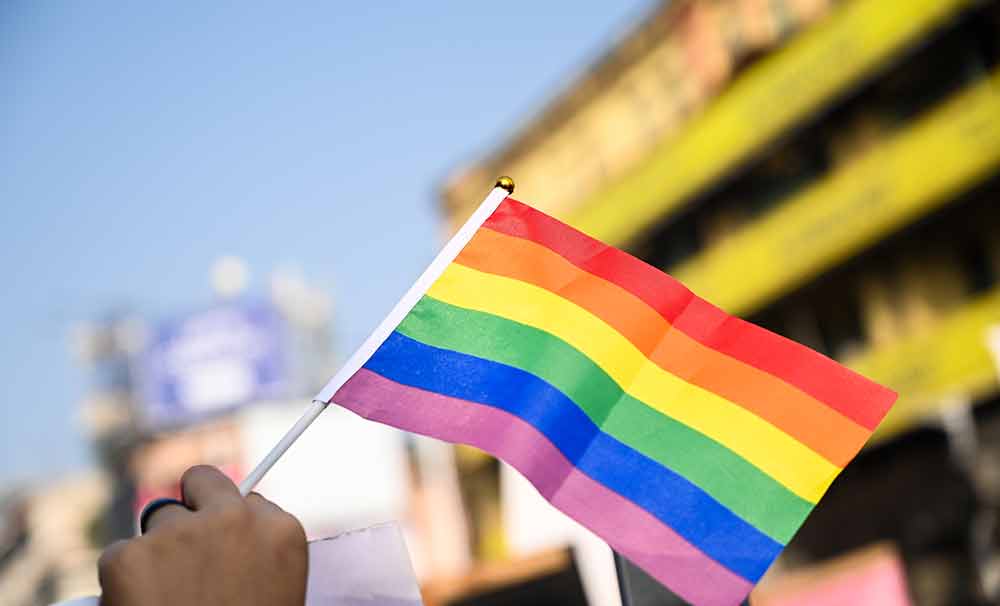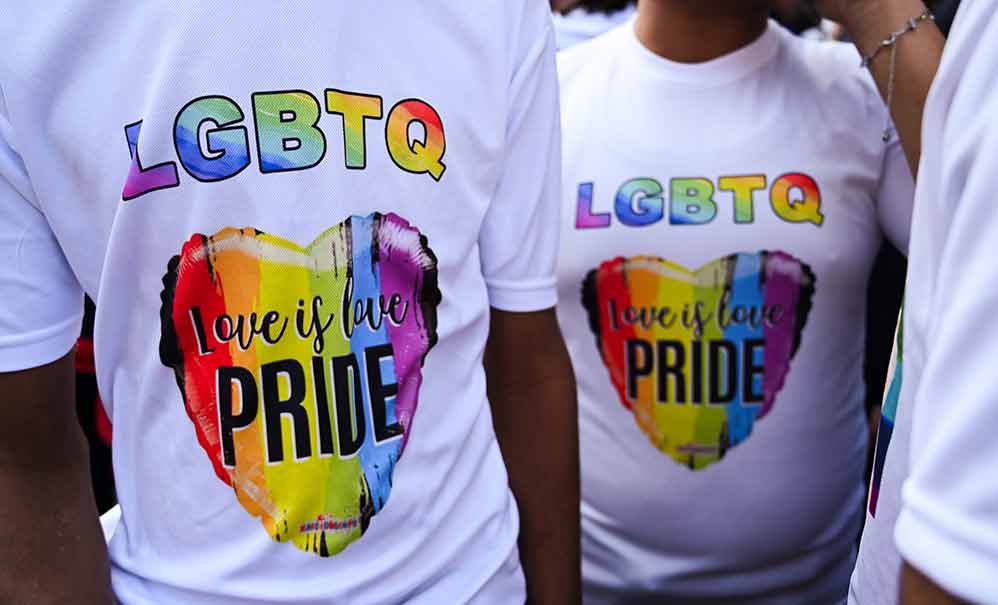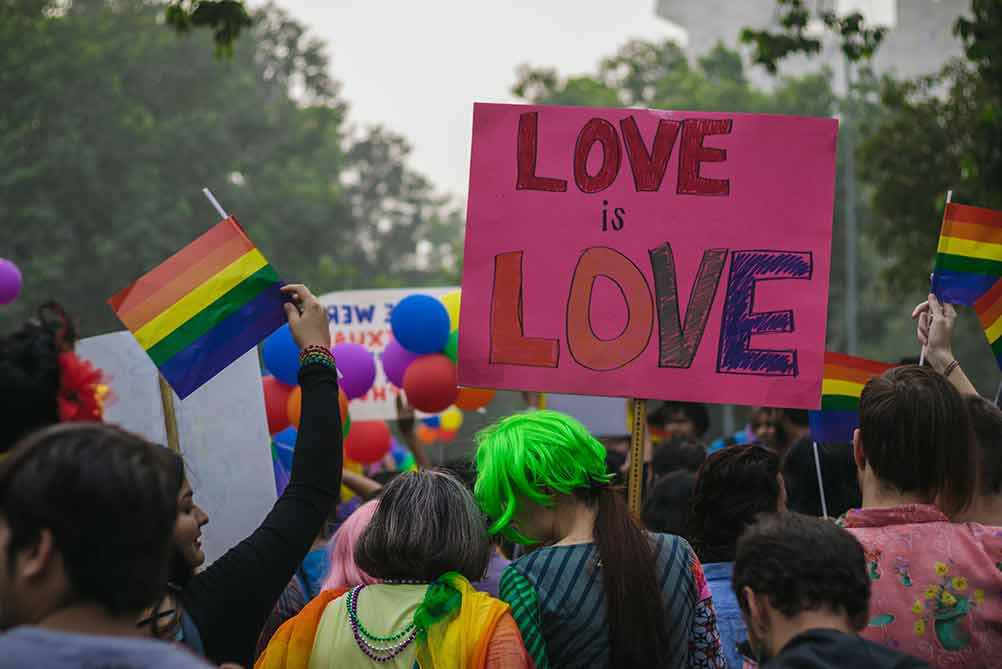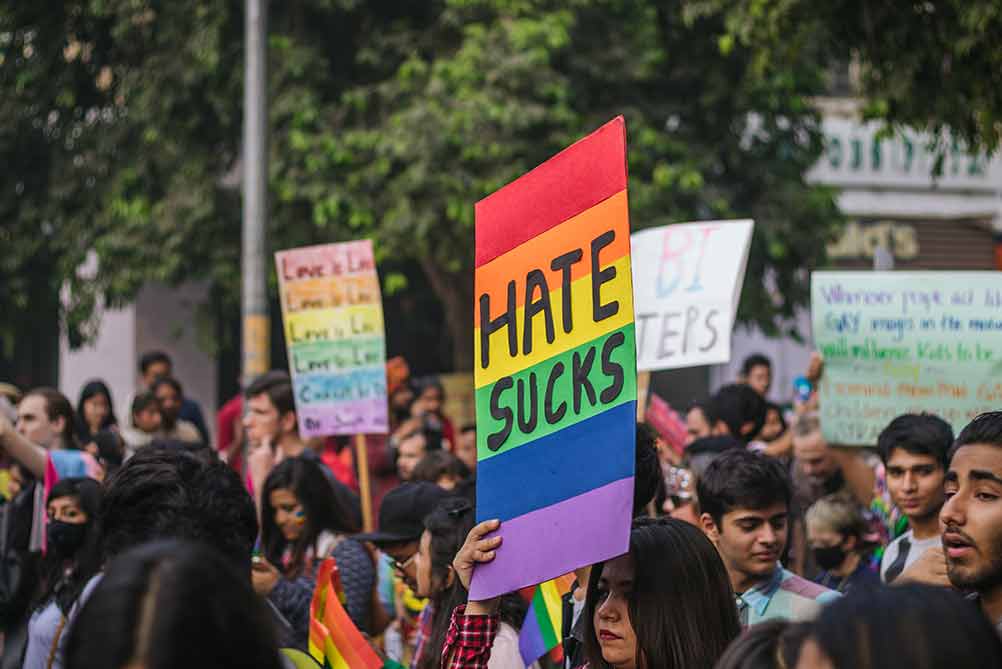It’s the end of 2021… we’re well into the third decade of the twenty-first century. And yet, when it comes to the basic human rights of those who identify as lesbian, gay, bisexual, transgender, queer, intersex, or asexual (LGBTQIA) are far from accessible and available to all, unconditionally. Over the last few decades, the world has made many strides in bringing better focus on LGBTQIA rights—this is absolutely true. Many parts of the world, where LGBTQIA sexuality and sexual relationships were criminalised have decriminalised the same, paving the way for better human rights and treatment. The world is indeed making slow and steady progress when it comes to LGBTQIA rights, and allies of the LGBTQIA community—from artists like Taylor Swift to actors, activists and politicians the world over—are as vocal in standing up for their loved ones’ lives and rights as members of the community are themselves.
Yes, we still have a long way to go when it comes to getting the LGBTQIA community rights equal to the ones cisgender heterosexuals (cis het) enjoy. But with every passing year, there are movements and legislations that inspire us to strive further, do better and embrace gender and sexual diversity more freely. How did 2021 fare this is the train of progress? Let’s take a closer look.

A Move For The Better
Though LGBTQIA rights still remain unrecognised in many parts of the world, in others, it has been decriminalised—which is certainly a step in the right direction. But before coming to the nations that decriminalised homosexuality in 2021, let’s address a common misconception many might still have—that countries in the Middle East have a blanket ban on LGBTQIA rights. While this holds true for countries like Saudi Arabia, Iran and Iraq, others in the region have decriminalised homosexuality. Countries like Bahrain, Turkey and Lebanon have indeed decriminalised homosexuality and also provide asylum to same-sex couples fleeing other nations as per the Geneva Convention.
This apart, in 2021, a number of countries decriminalised homosexuality, while others granted the LGBTQIA community more rights than before. Here are some notable improvements you should know about.
Angola: In February 2021, a new criminal code came into effect in the African nation of Angola. The new penal code not only decriminalises homosexuality, but also provides anti-discrimination protections to people who fall under the LGBTQIA spectrum. The penal code was passed by the parliament in 2019, signed by the president of Angola in 2020, and came into full effect from February 9, 2021 onwards.
Bhutan: A small country nestled in the Indian subcontinent, Bhutan took the big step of decriminalising same-sex relationships through an amendment in Section 213 of the country’s penal code. The decriminalisation legislation was passed by the parliament of Bhutan in 2020, but the bill was signed into law and made effective from February 17, 2021.
Canada: In December 2021, Canada made providing, promoting or even advertising conversion therapy a criminal offence. In case you didn’t know, conversion therapy is the practice (deemed bogus by many experts around the world) that is designed to change a person’s sexual orientation from homosexuality or bisexuality to heterosexuality. It’s highly intrusive and destructive as a method, which is why it’s deemed as cruel and criminal by many nations. Canada’s move can be seen as a great step in eliminating dehumanising practices with which the LGBTQIA community is often threatened with.
Chile: In November 2021, the Chamber of Deputies of Chile approved a bill that finally allows same-sex marriages in the country. Soon after, the Senate of Chile supported the bill, which will soon be effective as a law in the South American nation.
European Union: While some nations in Europe—like Poland and Hungary—backslid into outdated, anti-LGBTQIA ways, the European Union decided to step in to make a huge difference. The EU Parliament declared the entirety of the European Union and all its member states to be an LGBTIQ Freedom Zone, where all rights of LGBTQIA people will be upheld. The resolution was passed after 492 members of the parliament voted in favour, 141 against, and 46 abstained.

Sinaloa, Mexico: While the Mexican Supreme Court had legalised same-sex marriages in 2019, a few states like Sinaloa had resisted making the change. In June 2021, Sinaloa’s lawmakers finally recognised same-sex relationships as legal, and will bring the new laws into effect by the end of 2021. Now, more than half the states of Mexico have legalised homosexuality.
Israel: While LGBTQIA rights aren’t unheard of in Israel, a major legislation did stop same-sex couples from adopting children through surrogate mothers. This was changed in July 2021, when the Israeli High Court ruled that same-sex couples can indeed adopt children through surrogacy and passed the amendment to the Surrogacy Laws of the country.
Switzerland: In September 2021, 64.1 per cent of Swiss voters approved same-sex marriages in a nationwide referendum and all 26 cantons of the nation supported the reform. While the canton of Appenzell Inner Rhoden had the least number of voters in favour with only 50.8 per cent, the referendum was very popular in Basel City, where 74 per cent of voters came out in favour.

India And LGBTQIA Rights In 2021
India made a landmark decision in 2018 which brought it at par with the modern world where LGBTQIA rights are concerned. Under Section 377 of the Indian Penal Code (IPC)—a colonial law that dated back to 1860—homosexuality had been criminalised as a sexual activity “against the order of nature”. The five-judge Supreme Court bench of 2018 unanimously repealed Section 377, decriminalising homosexuality finally in the nation. With this, members of the LGBTQIA community of India received the same sexual rights as every other citizen, cis het or otherwise.
Since this landmark decision, awareness about the LGBTQIA community in India has improved, and so have the access to various related rights.
But decriminalising homosexuality is only one step, and there is still a lot India needs to achieve when it comes to changing perceptions about and increasing acceptance of the LGBTQIA community. It’s only with these changes that real, grassroots-level improvements can be brought about. A few moves in the right direction have been made in India in 2021. For example, the Madras High Court moved in June 2021 to ban conversion therapy. Justice N Anand Venkatesh suggested comprehensive measures to sensitise the various branches of the state infrastructure, including the police and judiciary, to remove prejudicial language and behaviour against the LGBTQIA community.
“Ignorance is no justification for normalising any form of discrimination,” Venkatesh wrote in his order, while also asking educators to reach out to parents to help “sensitise parents on issues of LGBTQIA+ community and gender nonconforming students, to ensure supportive families.” Further, in October 2021, the Indian National Medical Commission ordered that publishers and medical schools across the country edit textbooks and curriculum to exclude portrayals of the LGBTQIA community in any way which is unscientific or discriminatory. This move by the country’s highest medical regulator proves that multipronged efforts to normalise the LGBTQIA community’s presence in the country are afoot. While the LGBTQIA community in India still faces major discriminations—they do not have the right to marry or adopt children legally, and do face discrimination regarding job security, renting a house, etc—every step in the right direction should be celebrated and promoted to spread more awareness and acceptance.

The Backsliding States Of America?
But while so many countries have made progress in 2021, one nation has backslid its stance on LGBTQIA rights—the United States of America. According to a Human Rights Campaign report from April 2021, this year was projected to be “the worst year for LGBTQ” people in the USA since 2015. In 2015, 15 anti-LGBTQ bills had been enacted into law. However, by April 2021 itself, eight anti-LGBTQ bills had been passed, with another 10 already awaiting signatures from the governors of various states, and many more bills expected to be passed. Most of these bills target transgender people, limit local protections and laws that support the LGBTQIA community, and often even allow the use of discrimination on the basis of religion, ethnicity, etc.
One of the most shattering anti-LGBTQIA bills passed in the USA this year saw the state of Florida restricting the rights of trans athletes on the first day of Pride Month! Other proposed bills which are highly discriminatory include one from Oklahoma which lifts the ban on conversion therapy and one from Montana which restrict the access of trans minors to gender-affirming health care and school sports. While how many bills get passed is always doubtful, the very fact that these are being proposed in a day and age where most other nations are moving in the right direction begs the question: Is the USA indeed backsliding where LGBTQIA rights are concerned? Only time will show.